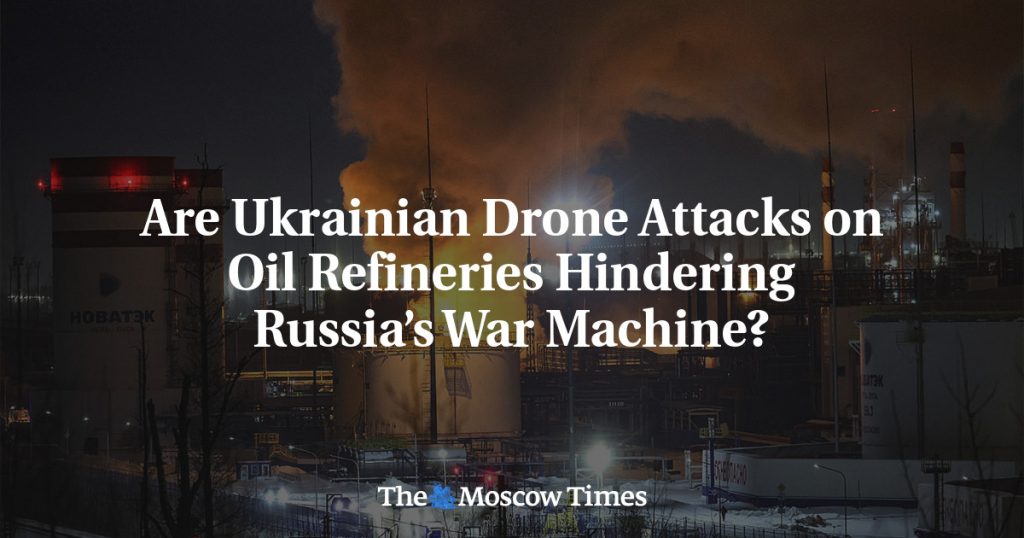Ukraine has increased its drone attacks on Russian oil refineries in an attempt to weaken Russia’s economy and limit fuel supplies to its military. Despite the frequent attacks, experts agree that the impact on the Russian economy has been minimal. However, Russia’s energy infrastructure is becoming increasingly vulnerable to these difficult-to-intercept attacks. The attacks have targeted major oil refineries within Russian territory, resulting in production capacity cuts and disruptions in operations.
The primary goal of the Ukrainian drone attacks is to damage Russia’s energy sector, which remains a key revenue source for the Kremlin. These attacks are also seen as retaliation for Russia’s strikes on Ukraine’s power grid. While the U.S. urged Ukraine to cease attacks due to concerns about global oil prices, the attacks continued. President Zelensky defended the attacks as a way to make Russian society adapt to life without essential resources. The attacks have led to a decline in gasoline production and an increase in prices.
Despite the impact on gasoline production, experts believe that the Russian military will not face a fuel shortage in the near future. The attacks are unlikely to lead to domestic shortages as Russia had surplus fuel capacity before the attacks. The government has imposed bans on fuel exports and increased imports from Belarus. The attacks have reduced exports of refined petroleum products, but Russia can compensate by increasing crude oil exports. The attacks have inflicted significant damage on infrastructure and led to decreased exports.
Ukraine is engaging in a war of attrition by deploying drones to wear down Russia’s defense and economic capabilities. With a limited supply of weapons from the West, Ukraine has focused on producing low-cost drones domestically to maintain the intensity of attacks. Protecting oil refineries from drone strikes is challenging due to the vast territory of Russia. Electronic warfare systems struggle to counter the drones, as they often rely on self-contained navigation. Ukraine is using AI components in drones to improve attack precision.
Russia is forced to divert air defense capabilities to protect refineries, leaving other critical areas vulnerable. Short-range air defense systems are not suited to counter drones, leading to the setup of mobile groups with anti-aircraft guns as a cost-effective solution. Russian companies have invested in anti-drone systems, but the country lacks an effective and systematic response to drone attacks. The attacks have had a significant psychological impact by exposing vulnerabilities in Russian defenses and bringing the war onto Russian territory.















